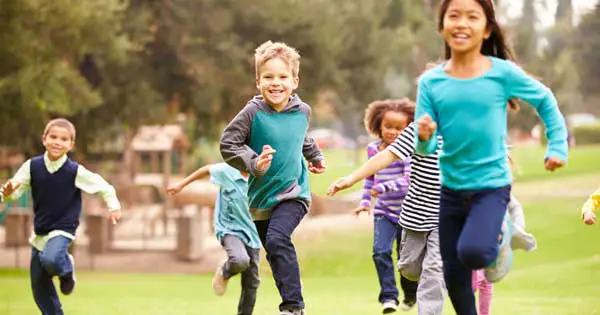Families are constantly bombarded with messages about the importance of healthy eating and maintaining an active lifestyle, so it’s not surprising that most young people know what they should be doing to stay healthy.
However, research suggests that knowing what food is good for them and how much exercise to take doesn’t necessarily mean young people actually putting their knowledge into practice.
Indeed, 69% of 11-14-year-olds are confident their own lifestyle is healthy, yet 21% don’t consider limiting the amount of fast food they eat, and 28% don’t meet physical activity guidelines.
The discrepancy between what young people know about being healthy and what they actually do is so wide that the Sainsbury’s Active Kids campaign has enlisted Paralympic gold medal sprinter Jonnie Peacock to help convince youngsters they need to make more effort to eat well and exercise.
He says: “When you’re growing up, you’re laying the foundations for your health and fitness for the rest of your life and it’s important to get the building blocks in place from an early age.”
Knowing and doing
Research by Sainsbury’s Active Kids found 84% of 11-14-year-olds believe being healthy is important; they know it’s important to maintain a balanced diet and eat their 5-a-day (95%), and have an hour of exercise a day (93%).
But conversely, they think skipping meals (19%) and cutting out food groups (43%) is healthy, and don’t consider limiting fried food (58%) or sweets and chocolate (23%).
And while 81% said they enjoyed being active, with nearly a third of girls motivated by looking good, and 28% of boys spurred on by celebrities and sports stars, 28% don’t meet physical activity guidelines of at least an hour’s exercise a day. They claim barriers such as bad weather and not being good at sport stop them doing more.
Sweet Peacock
Amputee Peacock, who has won 100m golds at the last two Paralympics, admits: “I definitely had a sweet tooth when I was younger and ate too much chocolate at times, but it’s all about balance in your diet and getting out to exercise.
“It was only when I started training full-time that the importance of nutrition and its effect on my physical abilities became truly apparent to me.”
Peacock, 23, says as an athlete he has to eat good food to ensure he’s at his peak, and stresses: “I’ve noticed a difference in my performance by eating the right food at the right time – it can give you more energy, but also helps you recover quicker.”
He advises youngsters to research healthy eating and exercise, explaining: “It’s important to understand why you’re doing something – why you need to eat vegetables and the impact removing carbs, for example, will have on your body.”
The sprinter says he avoids certain foods when training, but admits: “I tend to eat those after I’ve competed as a way of congratulating myself, letting off steam, and making sure I can refocus for the next race.
“It’s important to enjoy your favourite foods as part of a balanced diet – you have to reward yourself every now and again.”
Healthy choices
Paediatric dietitian Melissa Little points out that although most young people are aware of the 5-a-day message, they’re only consuming an average of 2.8 portions of fruit and vegetables daily.
“Even when children do understand the healthy eating message, it doesn’t always mean they follow it,” she says.
“It’s behaviour we need to change, and the easiest way to do that is to change the environment. We need to look at where children spend most of their time and ensure that in those places, the healthy choice is the easy choice.”
Daily PE and mandatory sports clubs at school would ensure all children get some exercise daily, she says, as would creating safe green spaces and walking/cycling paths to encourage active transport to and from school.
In addition, Little suggests there should be strict regulations about food available at school, tasty, healthy, and attractive school meals, and only limited fast-food outlets permitted near schools.
Uphill battle
She also says schools should provide advice on healthy eating and cooking to help counteract harmful advice youngsters see online.
Indeed, the Active Kids research found over a fifth of young people refer to potentially misleading social media, YouTube etc, for information on healthy eating.
That means there’s a barrage of online messages that conflict with official advice, and Little warns: “With celebrities advocating gluten-free and ‘clean eating’, it’s undoubtedly difficult to know what exactly a healthy diet is. Are young people going to listen to boring public health guidance or gorgeous celebrities?”
She adds: “By building health into everyday activity, change will slowly occur, though it will be an uphill battle.”
